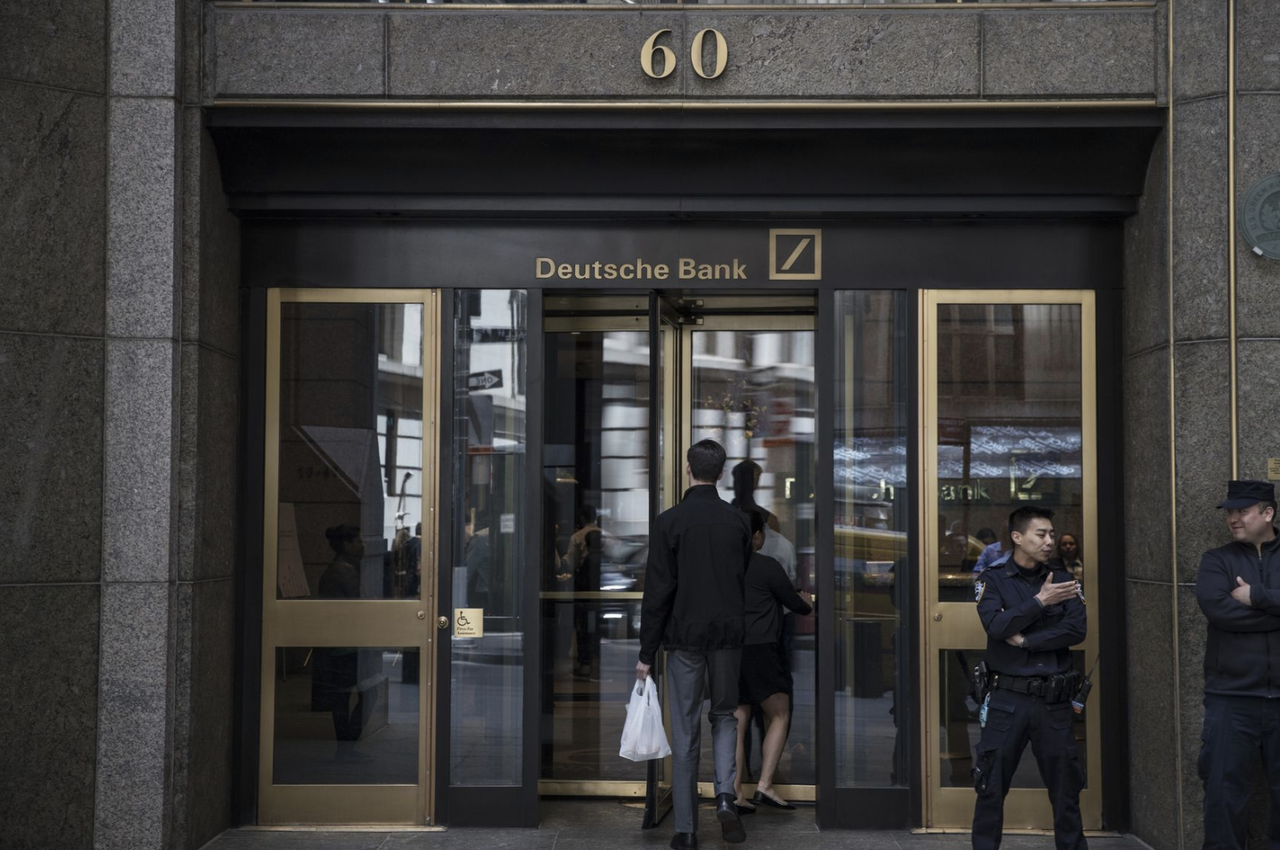Even as he repeatedly insisted that Deutsche Bank’s US investment-banking business is a critical part of the bank’s identity and its long-term strategy for offering a European alternative to JP Morgan, Christian Sewing probably knew, on some level, that he wouldn’t be able to survive as CEO if he didn’t agree to some serious cutbacks.
For their sake, let’s hope most of the bank’s front-office employees, the traders and salespeople who have powered DB’s troubled US equities and rates-trading businesses, have been able to read the writing on the wall as well. According to a story published by Bloomberg on Monday, it looks like they have. Because the mood inside 60 Wall can best be described as resigned indifference.
As reports of steep job cuts (as many as 20,000 personnel including hundreds of traders) swirl, the scene inside DB’s main office in the US (it also has a large back-office presence in Jacksonville) has devolved into a tableau familiar to those who survived the financial crisis: Empty desks, boxes piled up in corner offices, traders and other more junior employees leaving for long, boozy lunches at 1 pm – and sometimes never returning for the day.
Junior employees spend part of their days sending out resumes – and their bosses either don’t care, or are actively encouraging them. Everybody – even the executives and managers – seems to be waiting for the next shoe to drop in Frankfurt (the German city where DB’s global headquarters is located), according to Bloomberg.
Begin on the 46th floor, overlooking the East River: brown boxes have been stacked in the offices of the senior-most executive in the Americas. More than 40 flights down, on the trading floor, seats sit empty at mid-morning. Computer screens are black. Some who remain are openly hunting for jobs at rival banks. Their bosses know, and don’t mind.
On a recent weekday, an executive spied junior traders enjoying beers at the nearby Full Shilling pub. It was just past 1 p.m. Older traders could be found at Cipriani on Wall Street, where the famous bellini cocktails are served in wood-paneled rooms or on a terrace between stone ionic columns.
So it goes nowadays at Deutsche Bank in New York, where everybody, from the executives down, seems to sense that more bad news is coming from Frankfurt.
Several senior executives from the US business have either already left, or are planning on making their exit soon. These include Peter Selman, the executive who came out of retirement in 2017 to try and turn around DB’s flagging US equities business. One top executive “hasn’t been seen at work in weeks.”
Executives in New York have for more than a year worked under the cloud of whether the US operation would be sold, gutted or spun off.
Typical internal battles over who bore certain expenses took on more weight when every unit was under a microscope. Peter Selman, who came out of retirement in 2017 to revive the equities business, unsuccessfully lobbied Treasurer Dixit Joshi last year to move as much as 300 million euros of costs allocated to his unprofitable unit to the fixed-income business, people briefed on the talks said.
For his part, Sewing has said consistently – and publicly – that he was committed to the U.S. investment bank since taking over as CEO last year. But the new chief has been struggling to restore confidence among investors and regulators amid the bank’s moribund profitability. After a failed attempt to merge with Commerzbank AG that was encouraged by Germany’s own finance minister, shareholders are pushing for a turnaround plan. Many executives aren’t waiting for that.
Selman is now among dozens already on their way out, the people said. Zia Huque, the CEO of Deutsche Bank’s securities division in the U.S., hasn’t been seen at workin weeks. Tom Patrick, the head of the Americas who joined the bank a decade ago and oversees the relationship with the Federal Reserve, seems to be packing up his office, and Deutsche Bank is considering his replacement.
Several senior traders have also decided to call it a day.
Longtime traders like Brad Kurtzman, Craig Bench and Powell Fraser have also left the bank, followed by dozens of second- and third-tier executives – many of whom can’t find jobs elsewhere. Some US managers said that for years they advised cutting some smaller pieces of the trading business to improve profitability. As they exit, they lament that senior executives didn’t heed their counsel and now need the heavy ax.
That’s left Ashley Wilson, the co-head of equities trading in the Americas, as the most senior executive now effectively charged with reorganizing the unit. Though we imagine that terrible responsibility might prompt her to start updating her resume, if she hasn’t already.
In one respect, the situation at DB’s American unit mirrors what’s happening in Puerto Rico two years after Hurricane Maria. At this point, anybody with the means to leave, has already left. And though DB managed to pass the Fed’s stress test this year, that doesn’t change the fact that, now that the Commerzbank merger has fallen apart, Sewing has run out of excuses to try and protect his bank’s unprofitable i-banking franchise.
Now, all that’s left is to see whether the group will be culled, sold, or shut down in its entirety.
via ZeroHedge News https://ift.tt/2RMOWXp Tyler Durden
